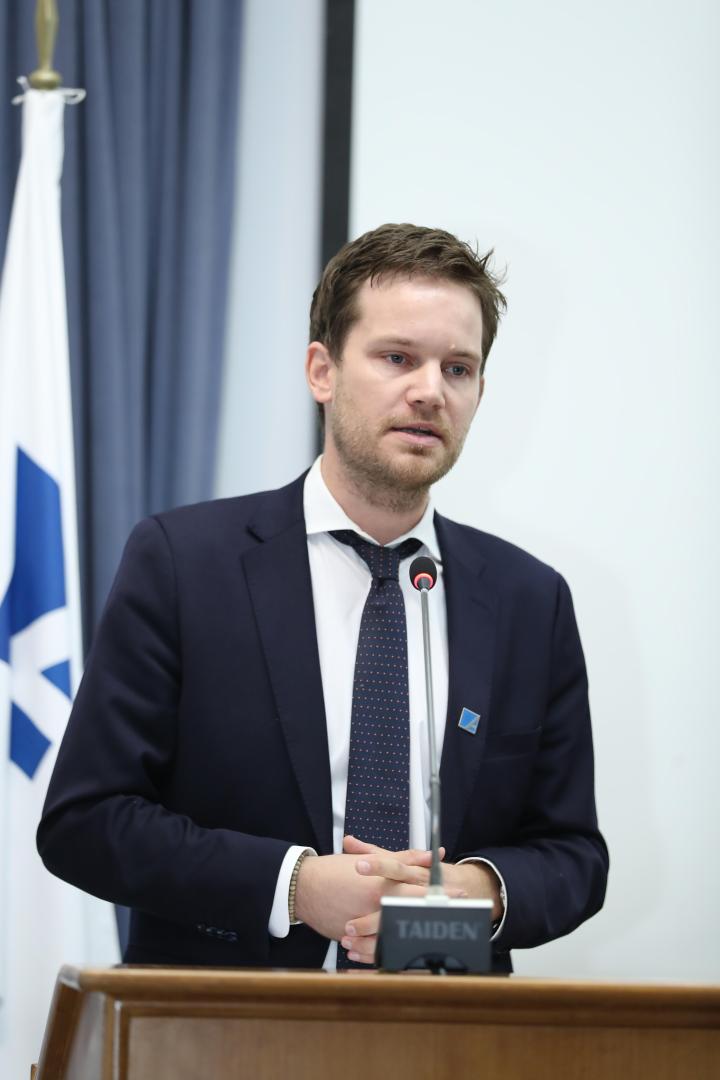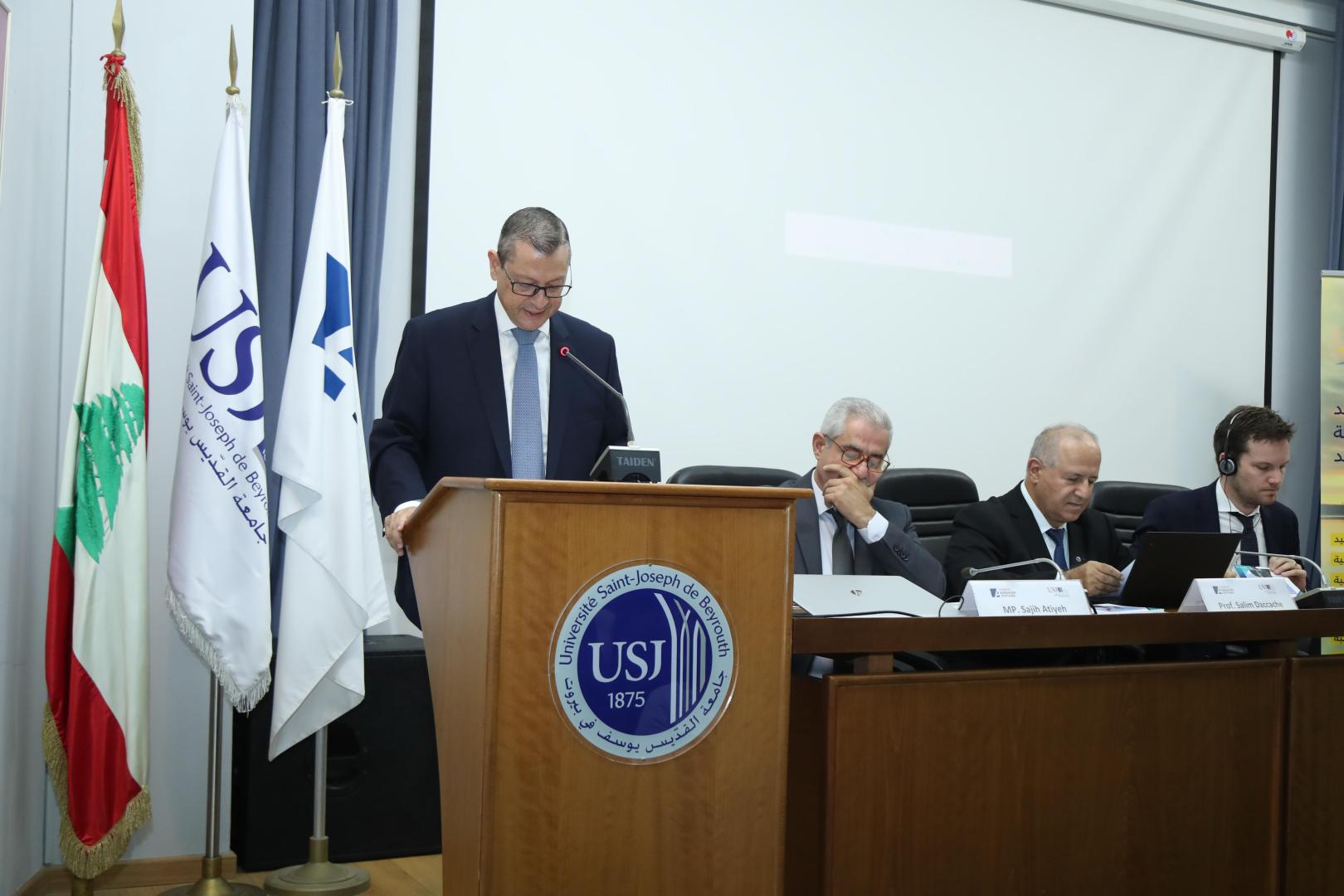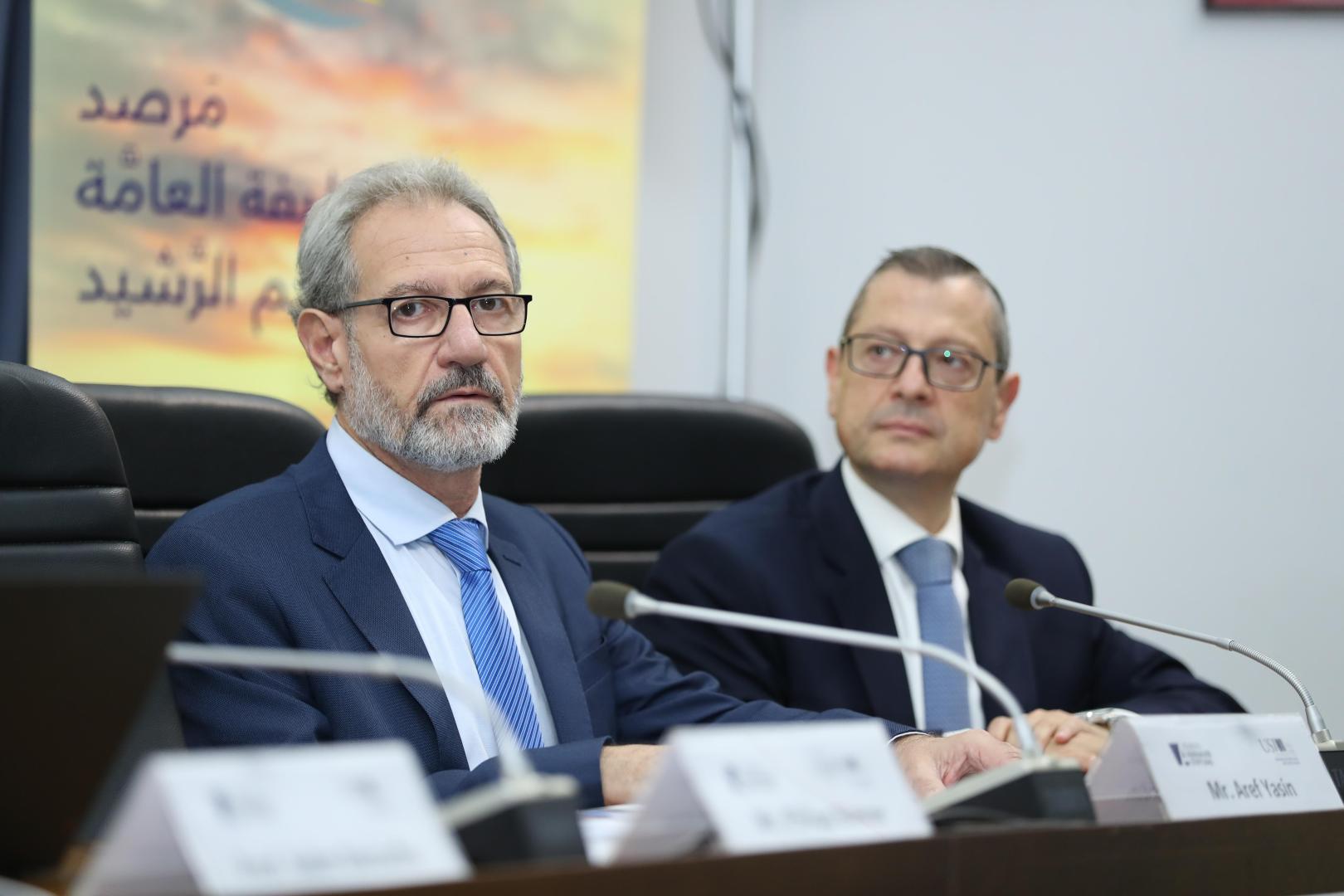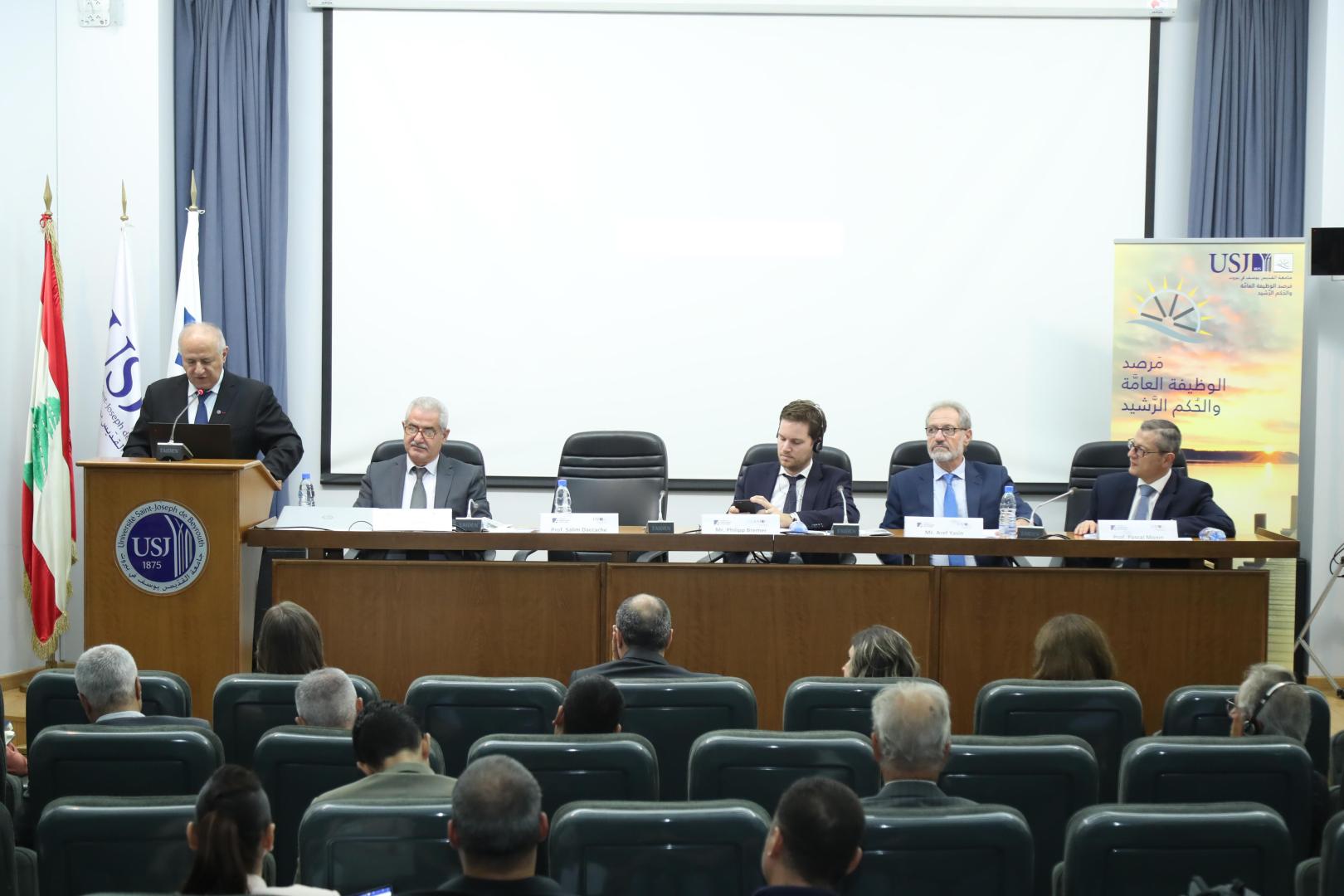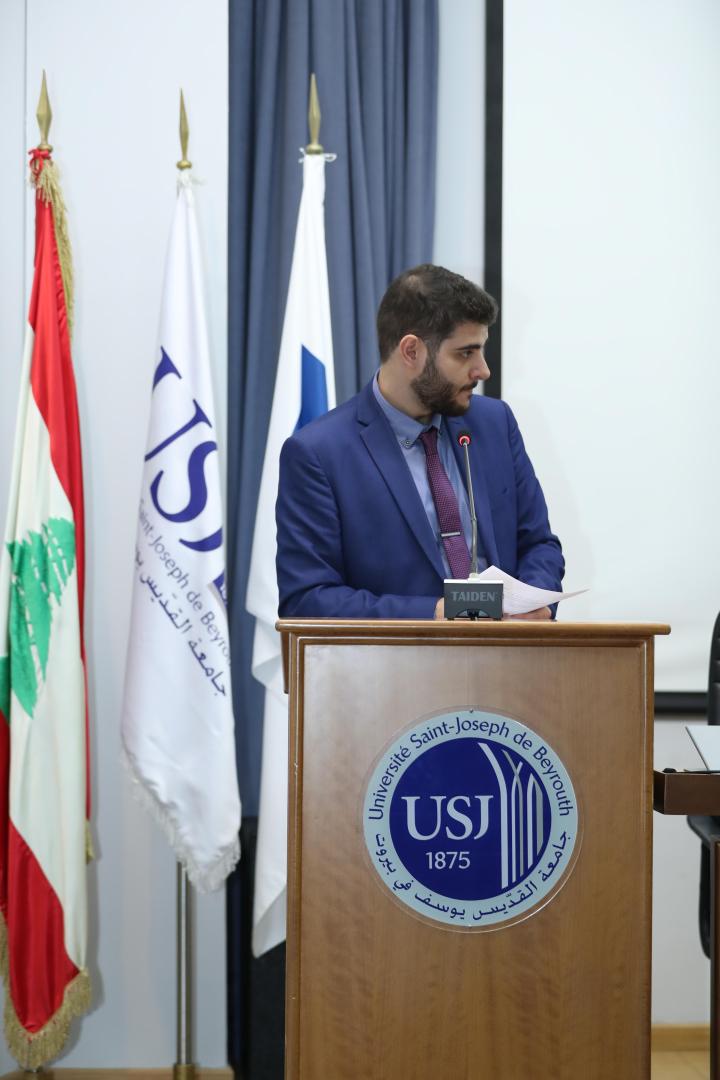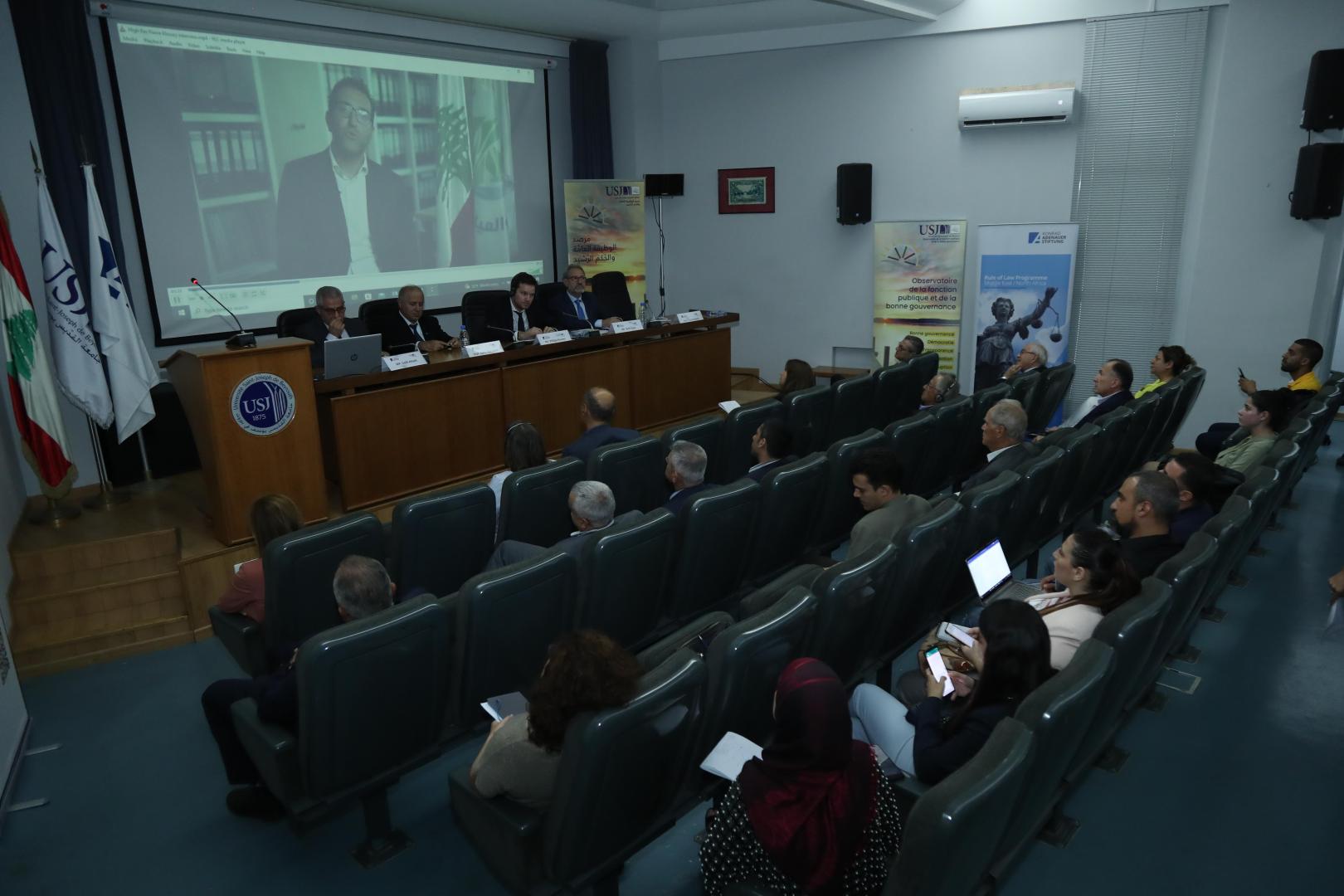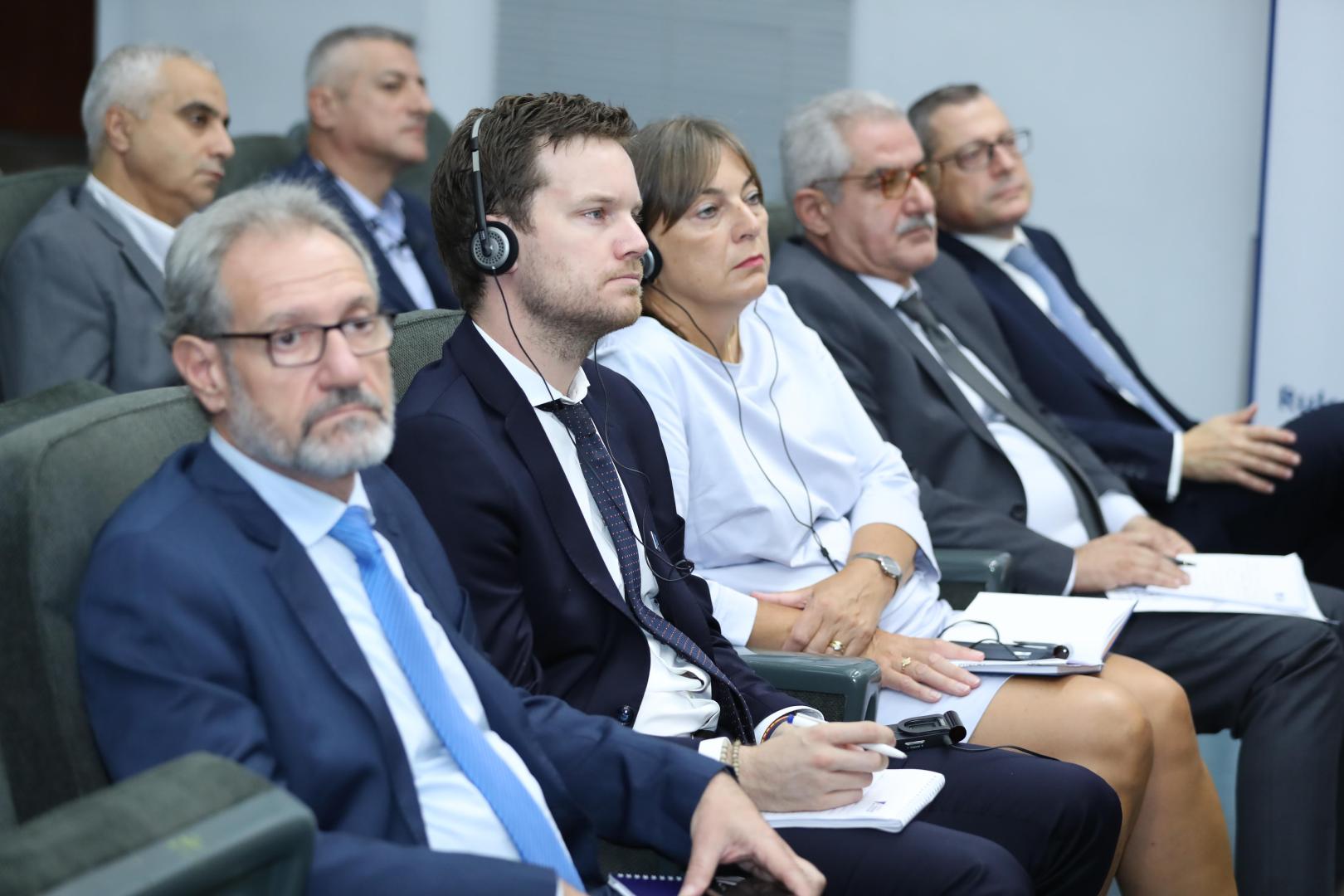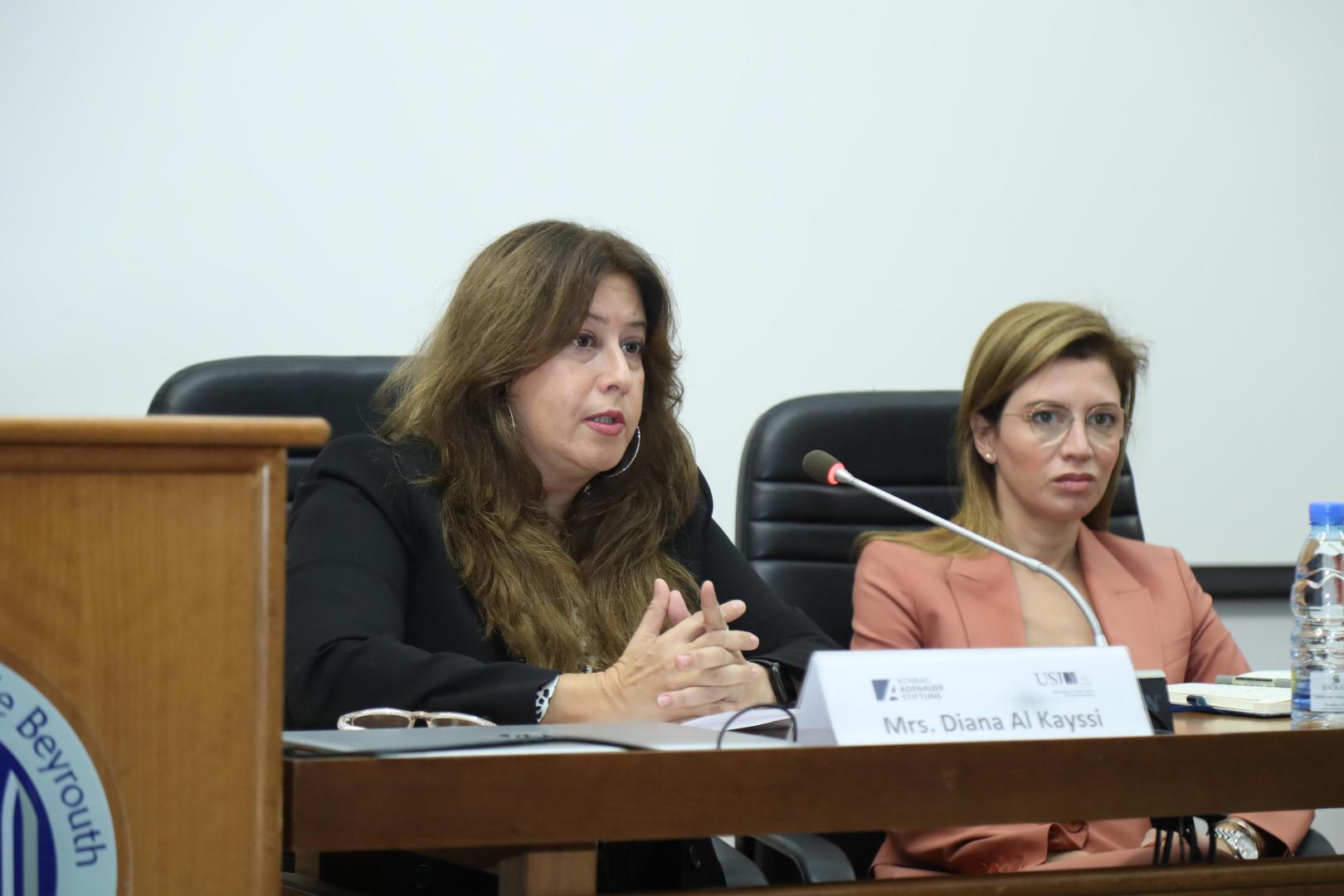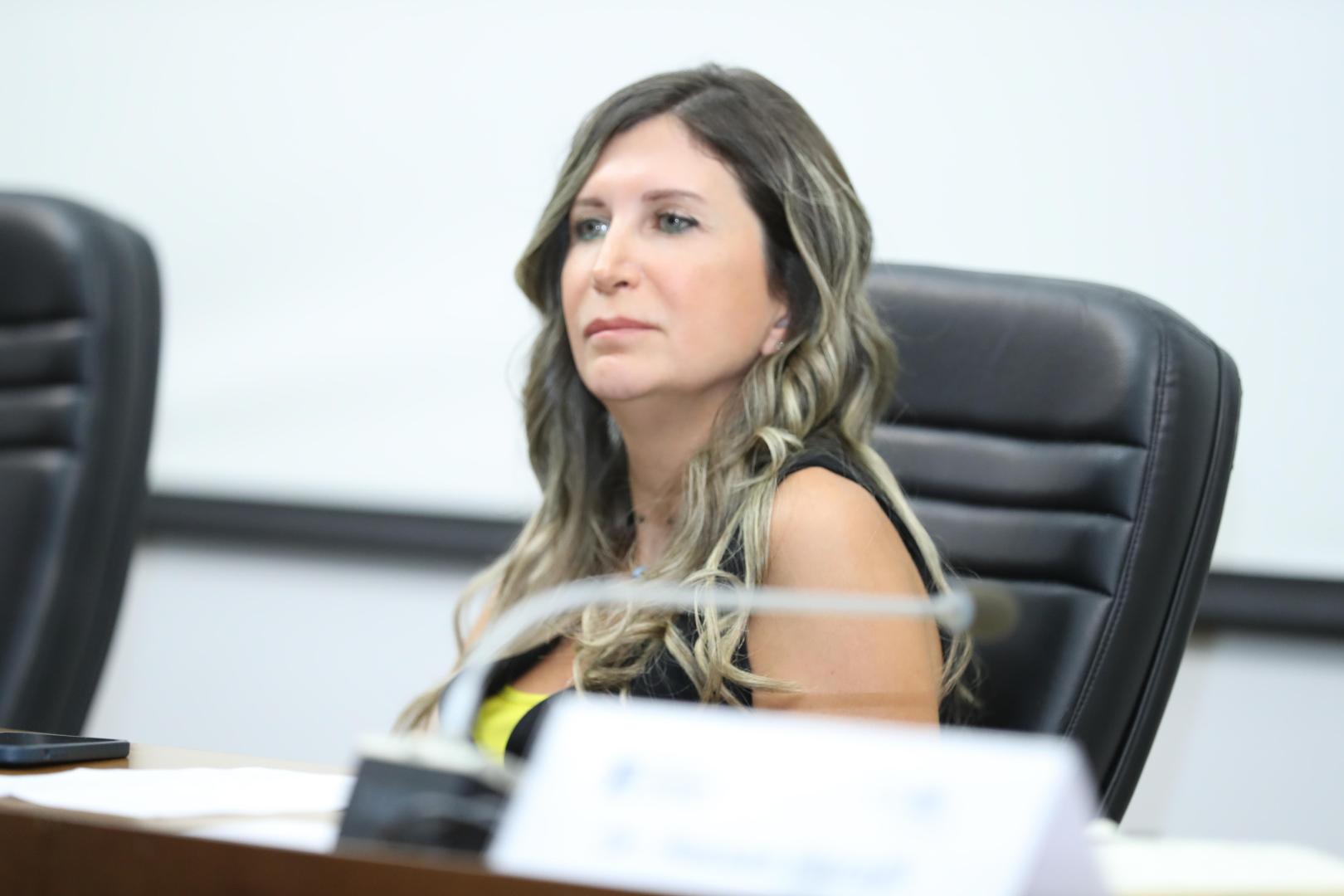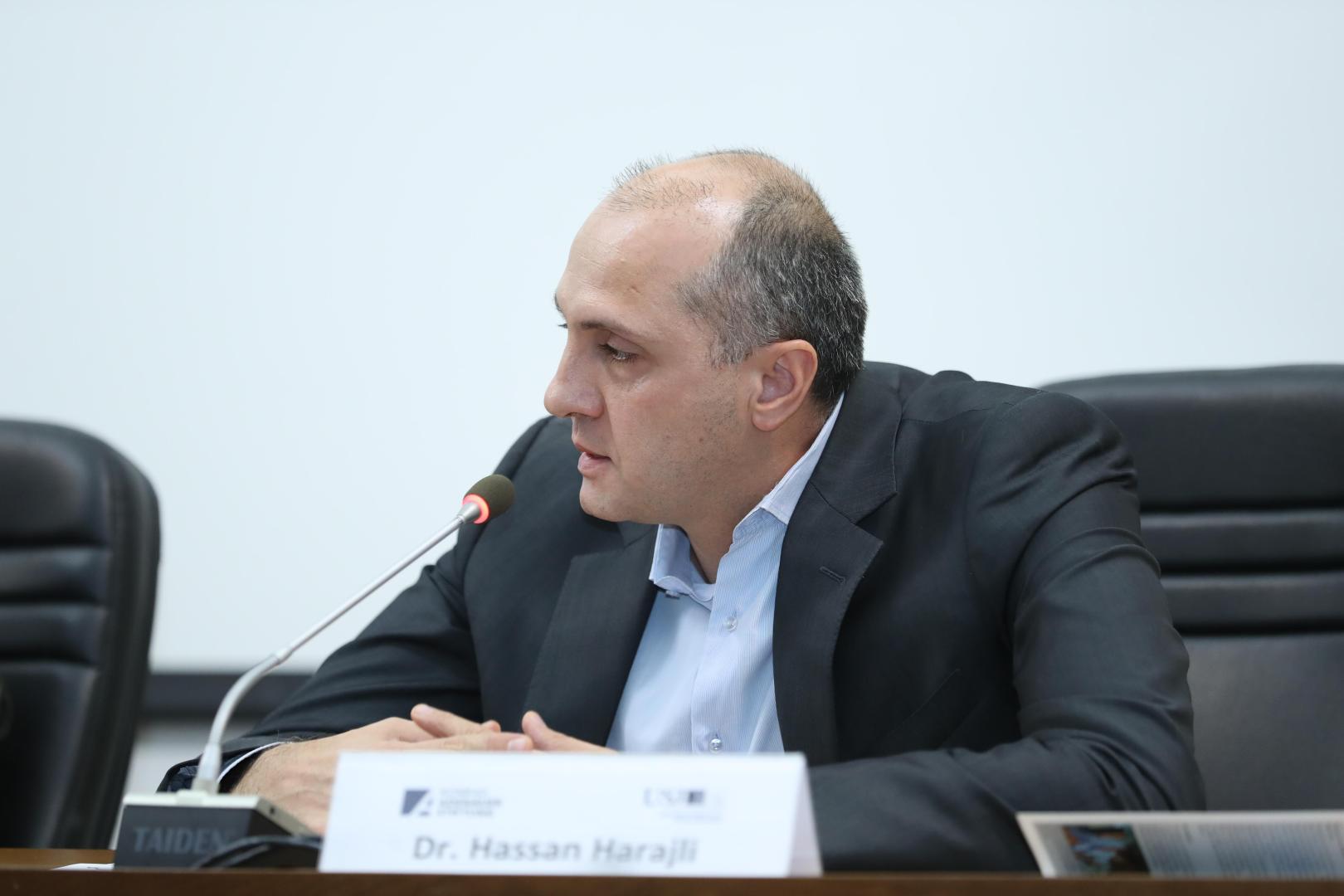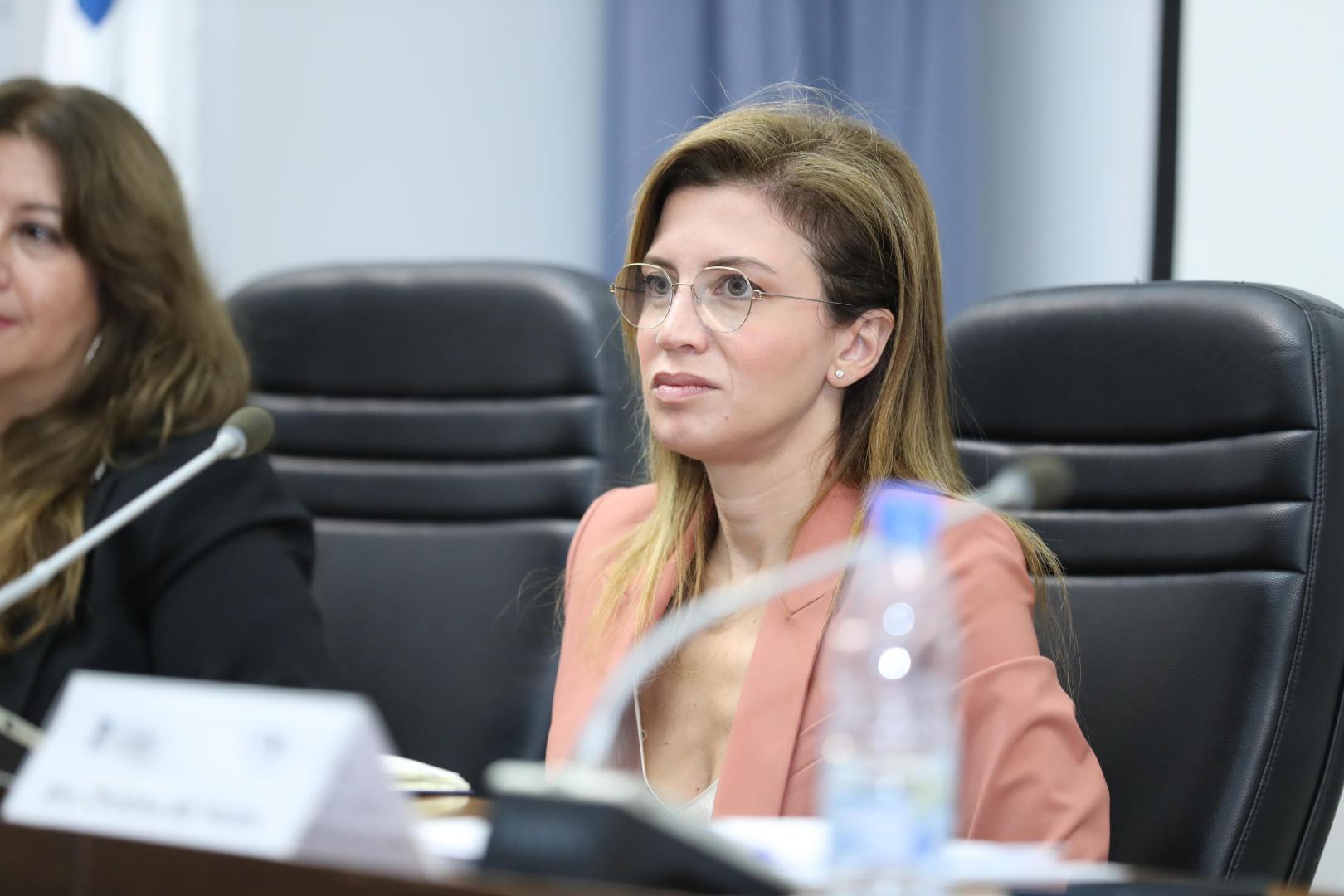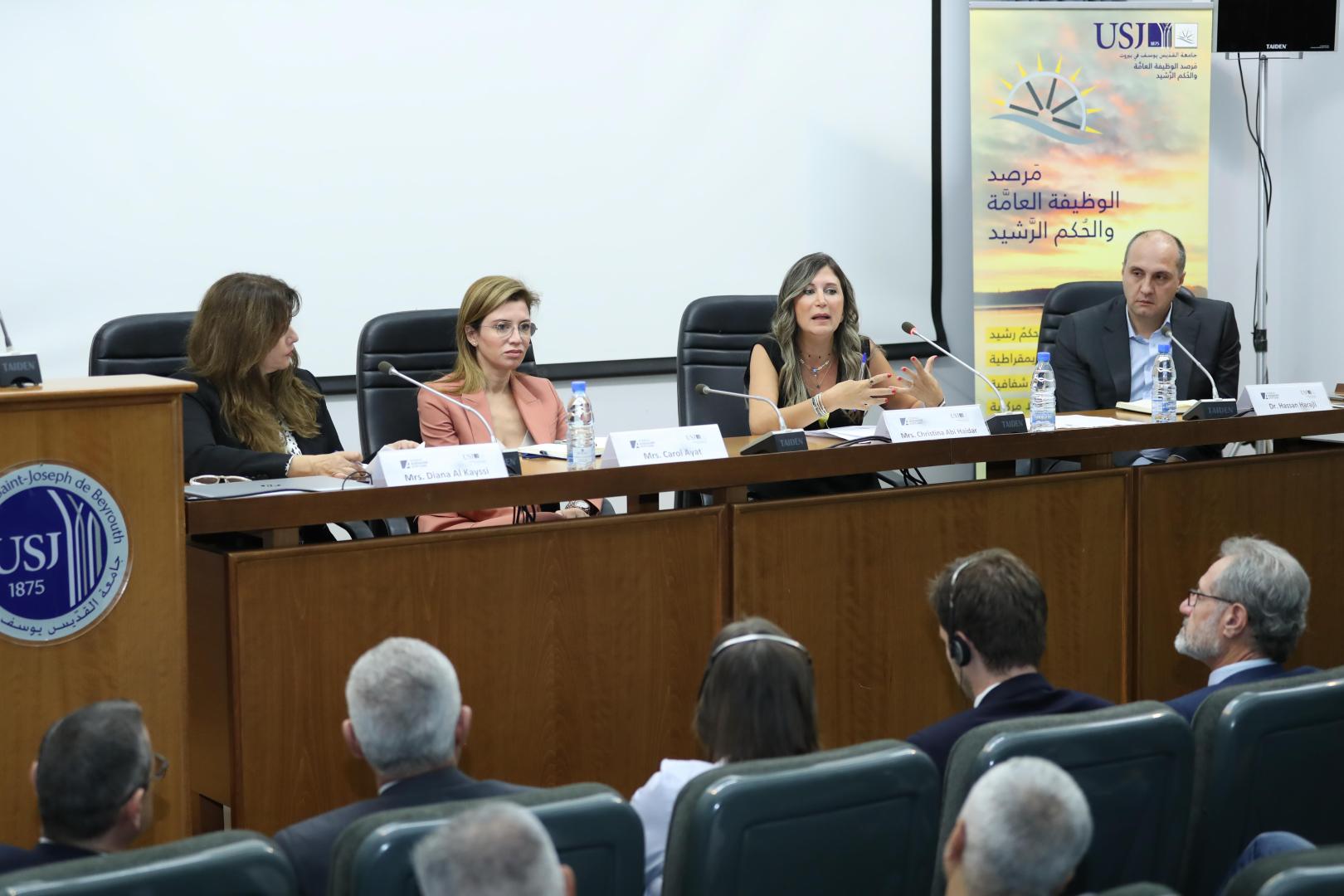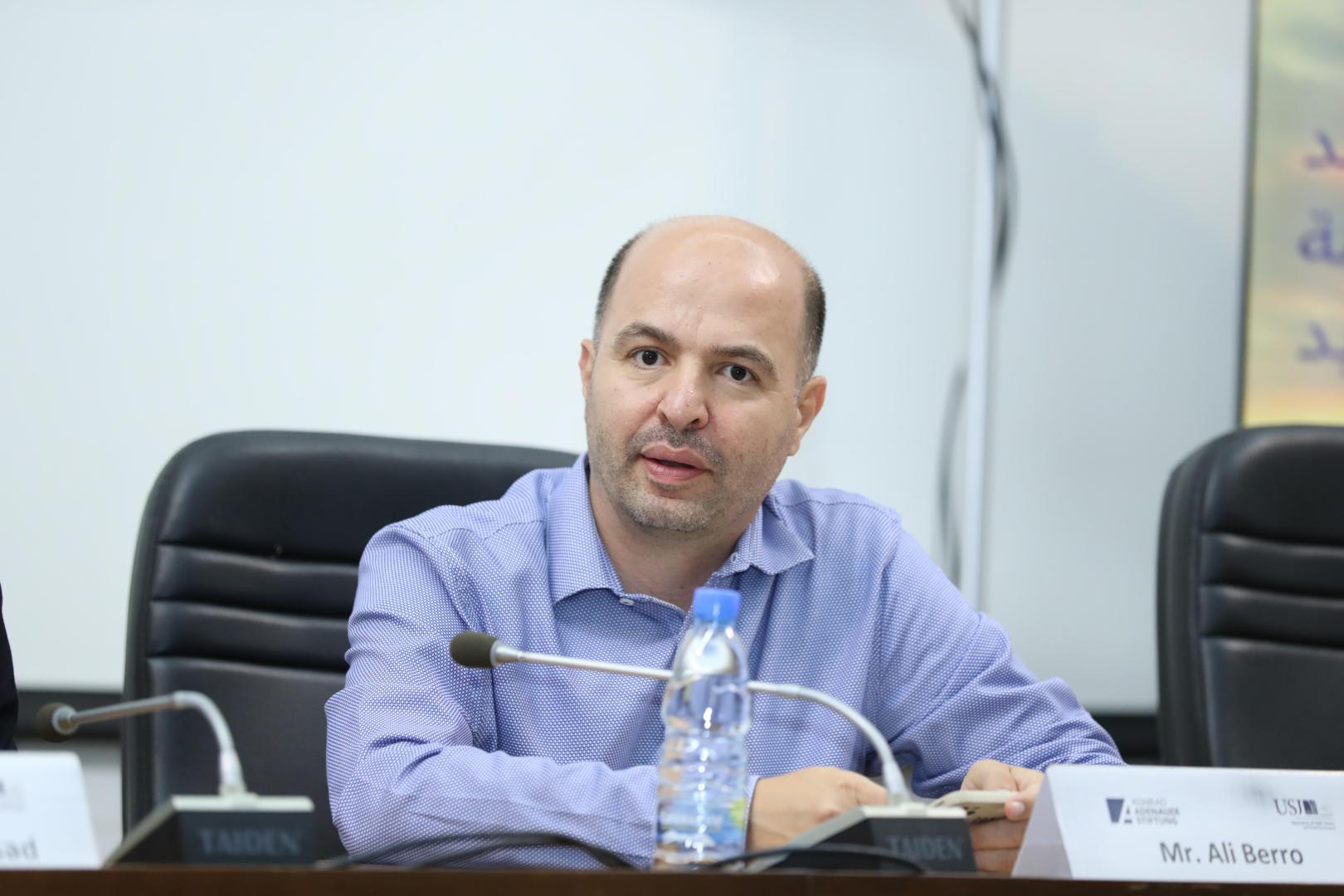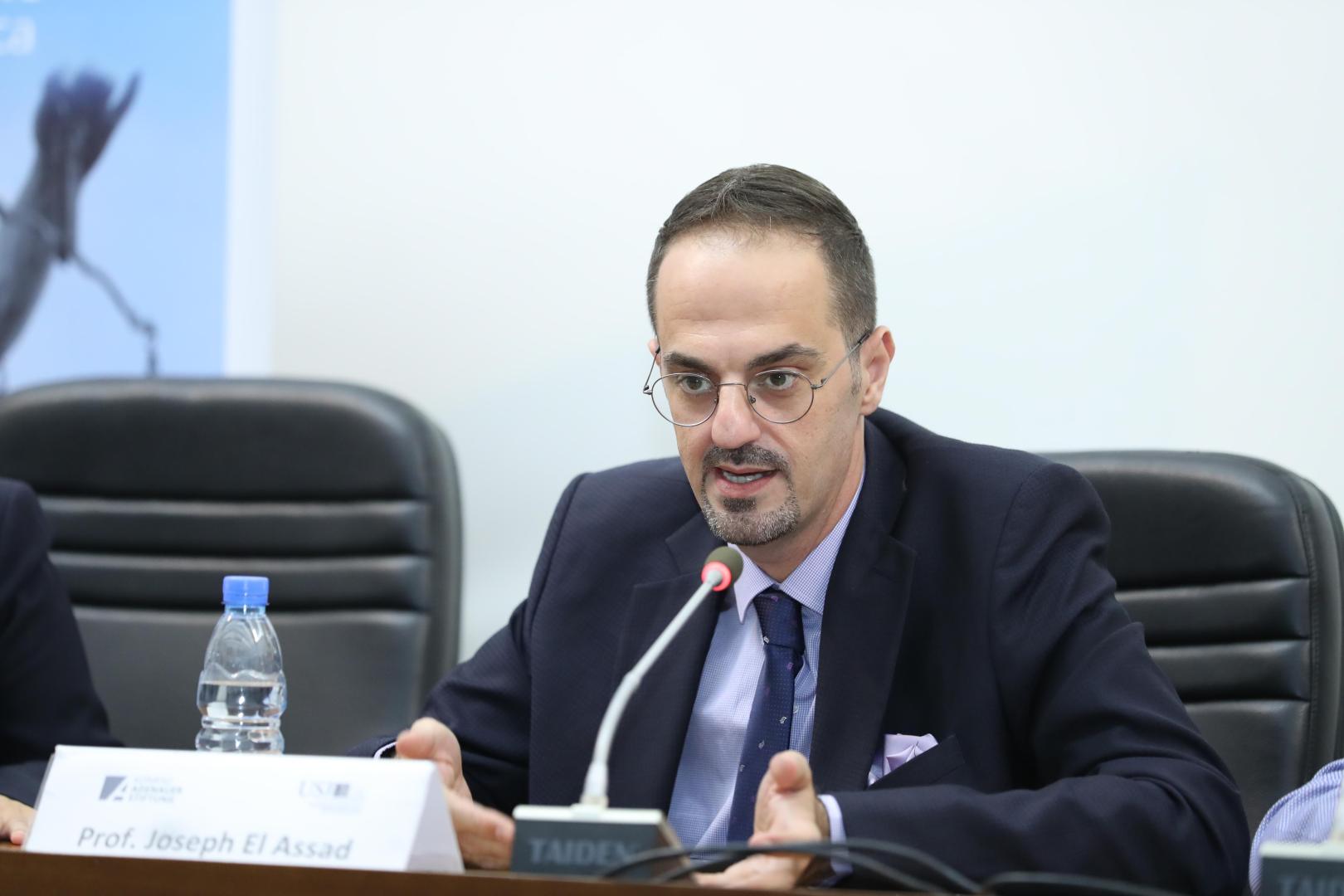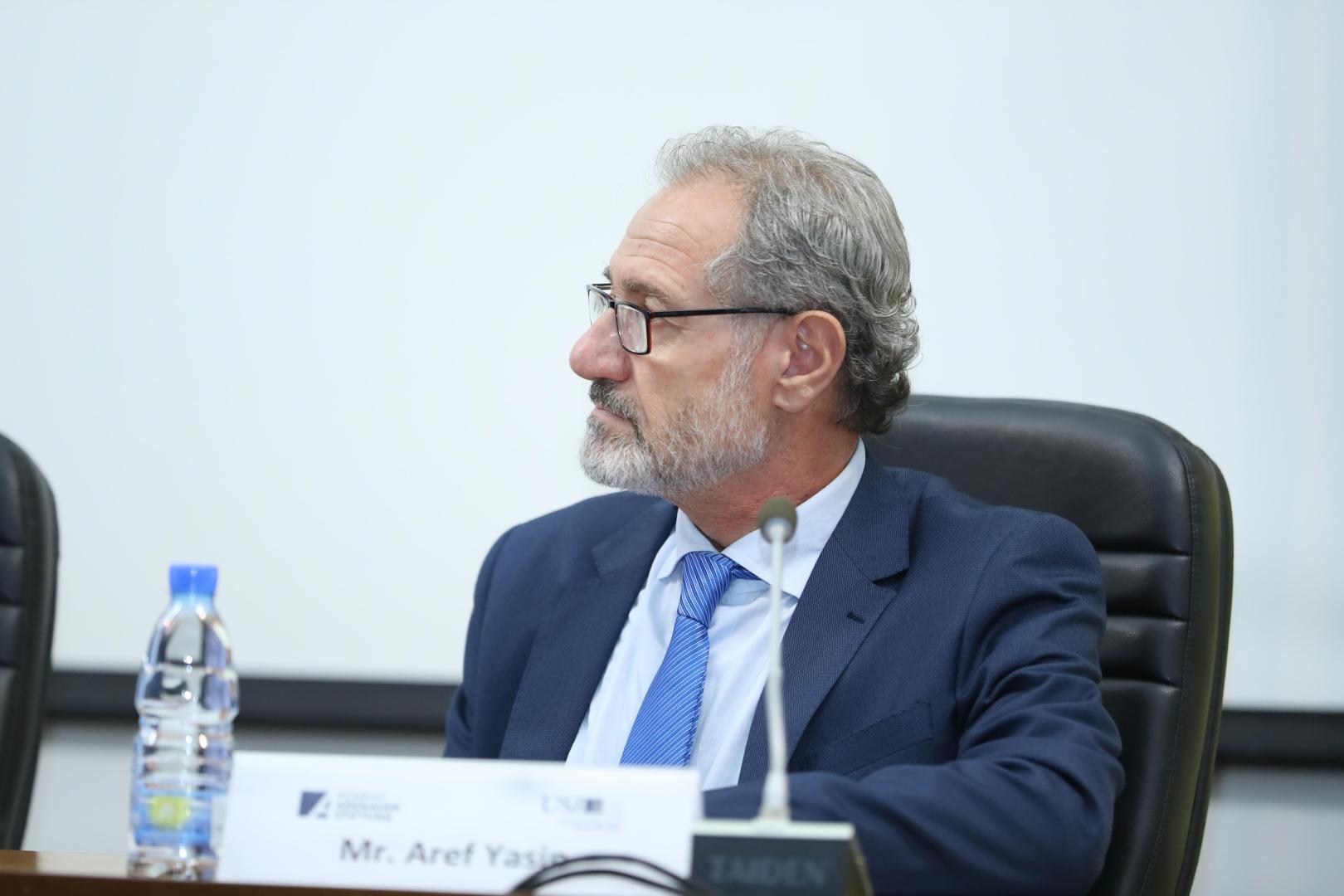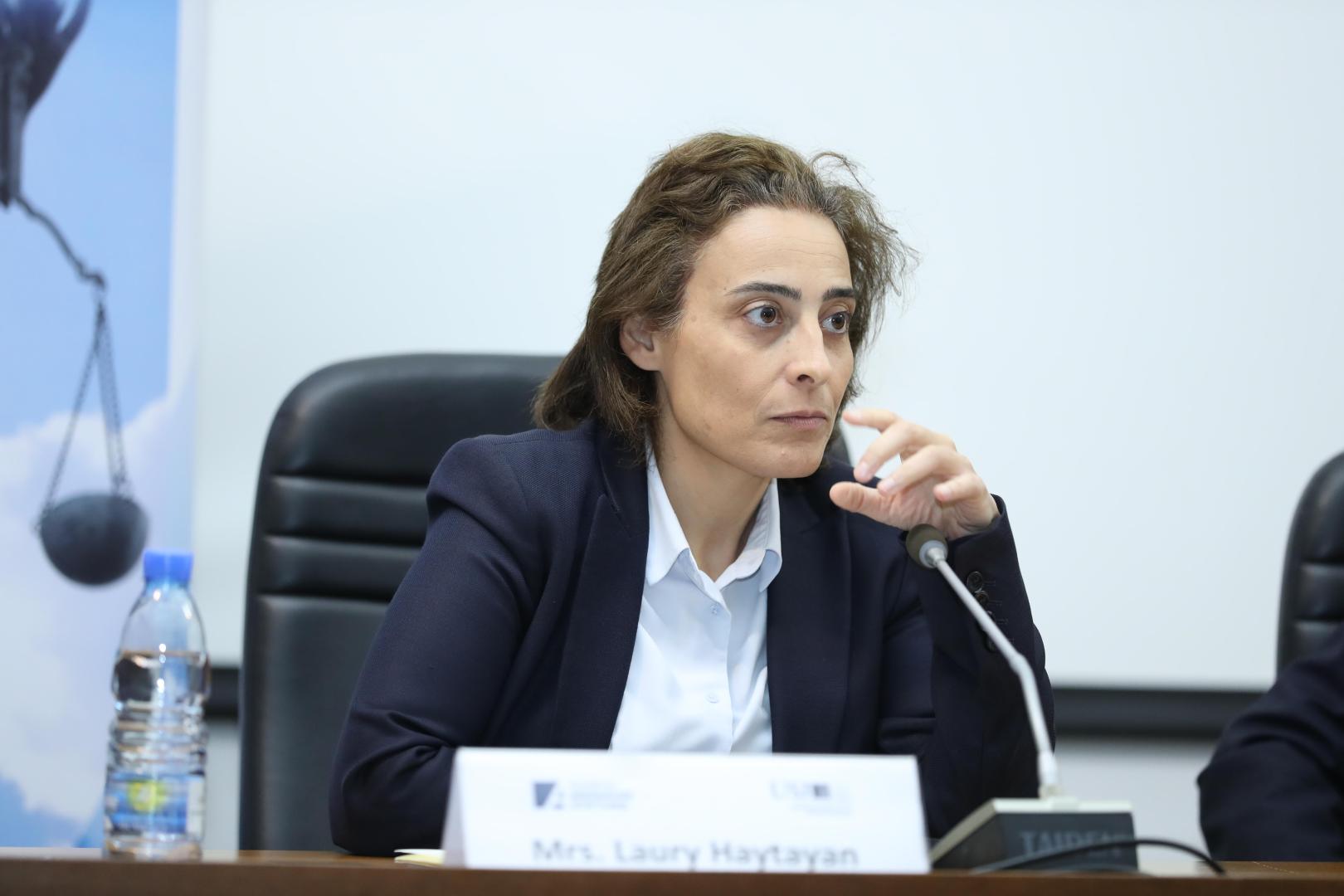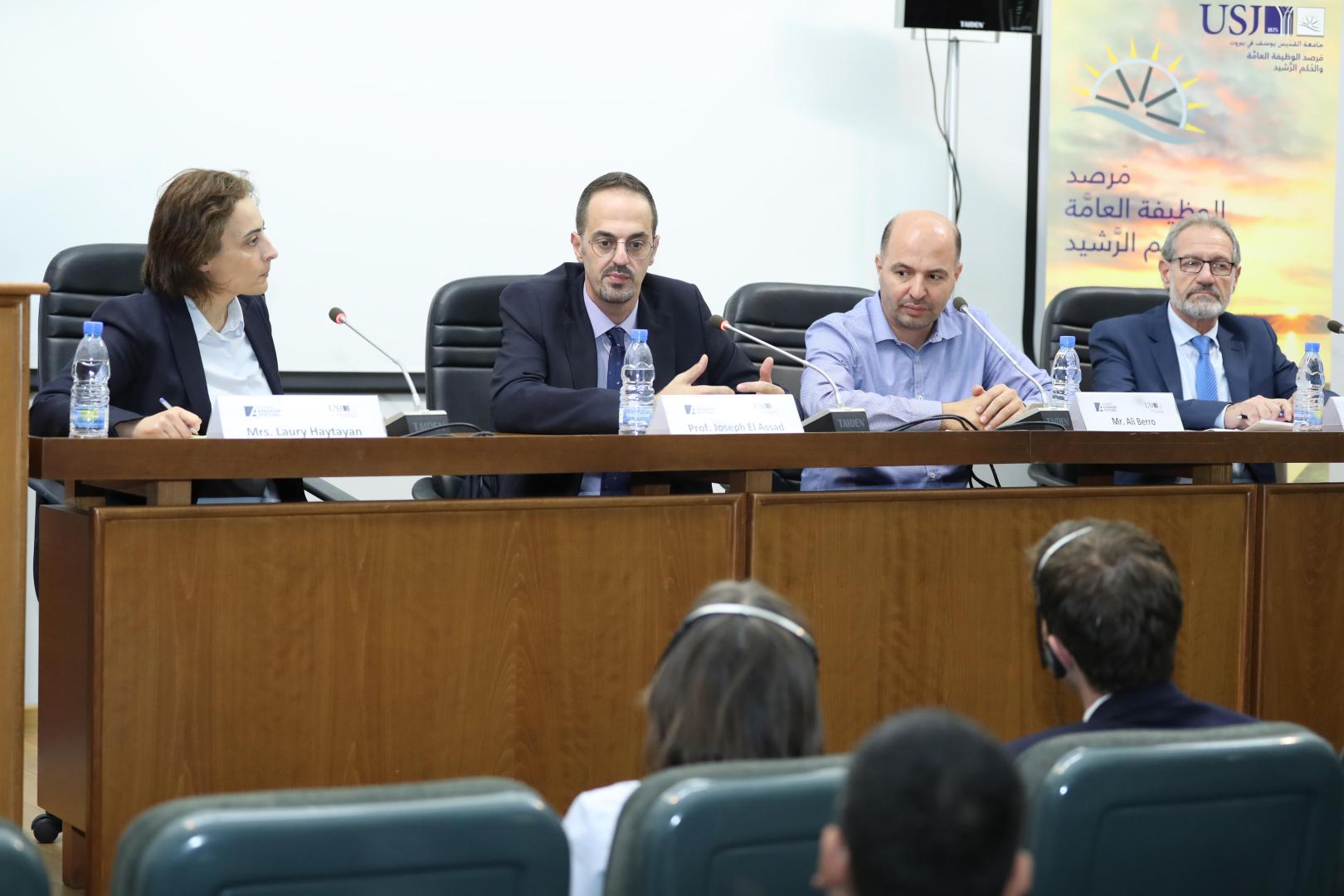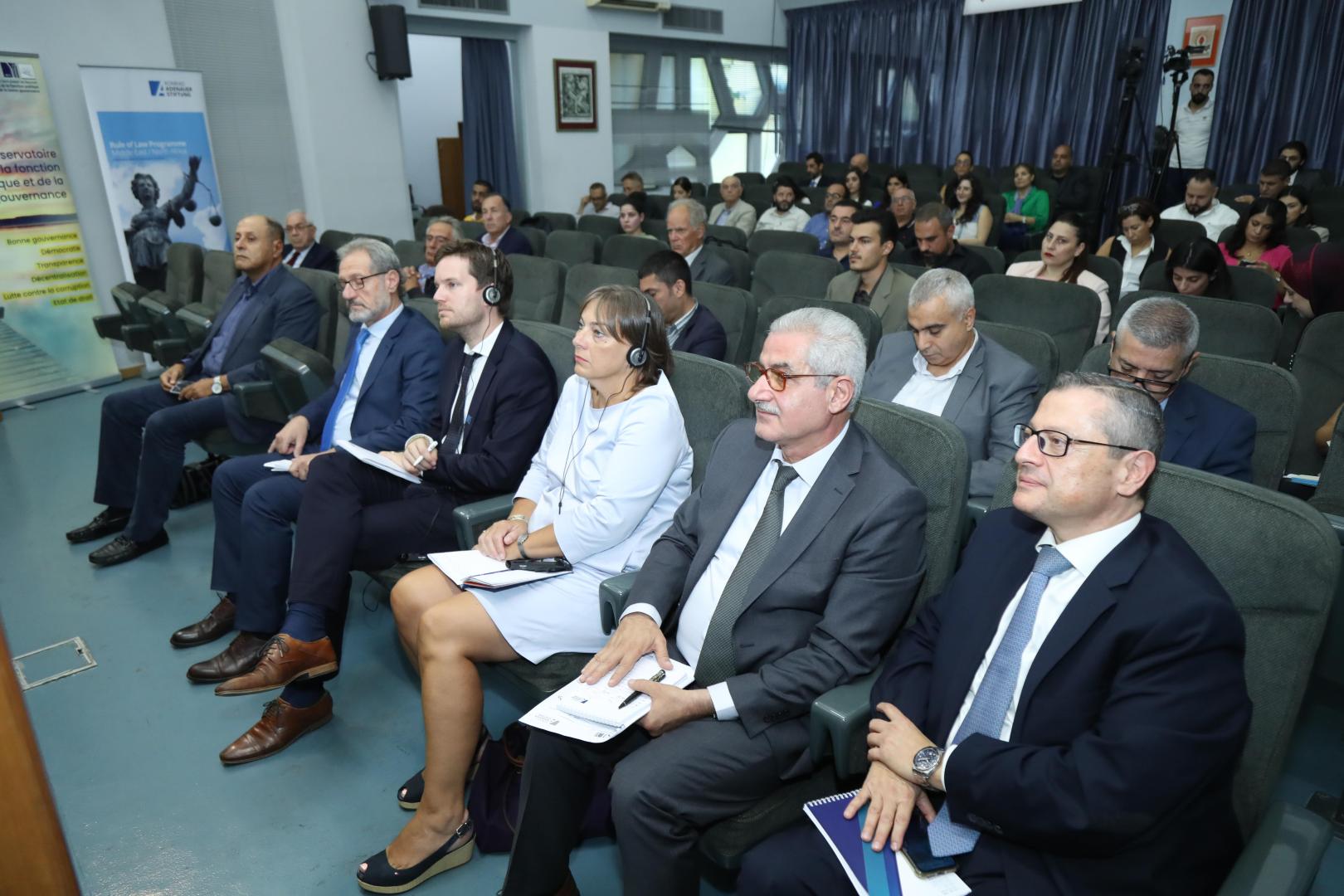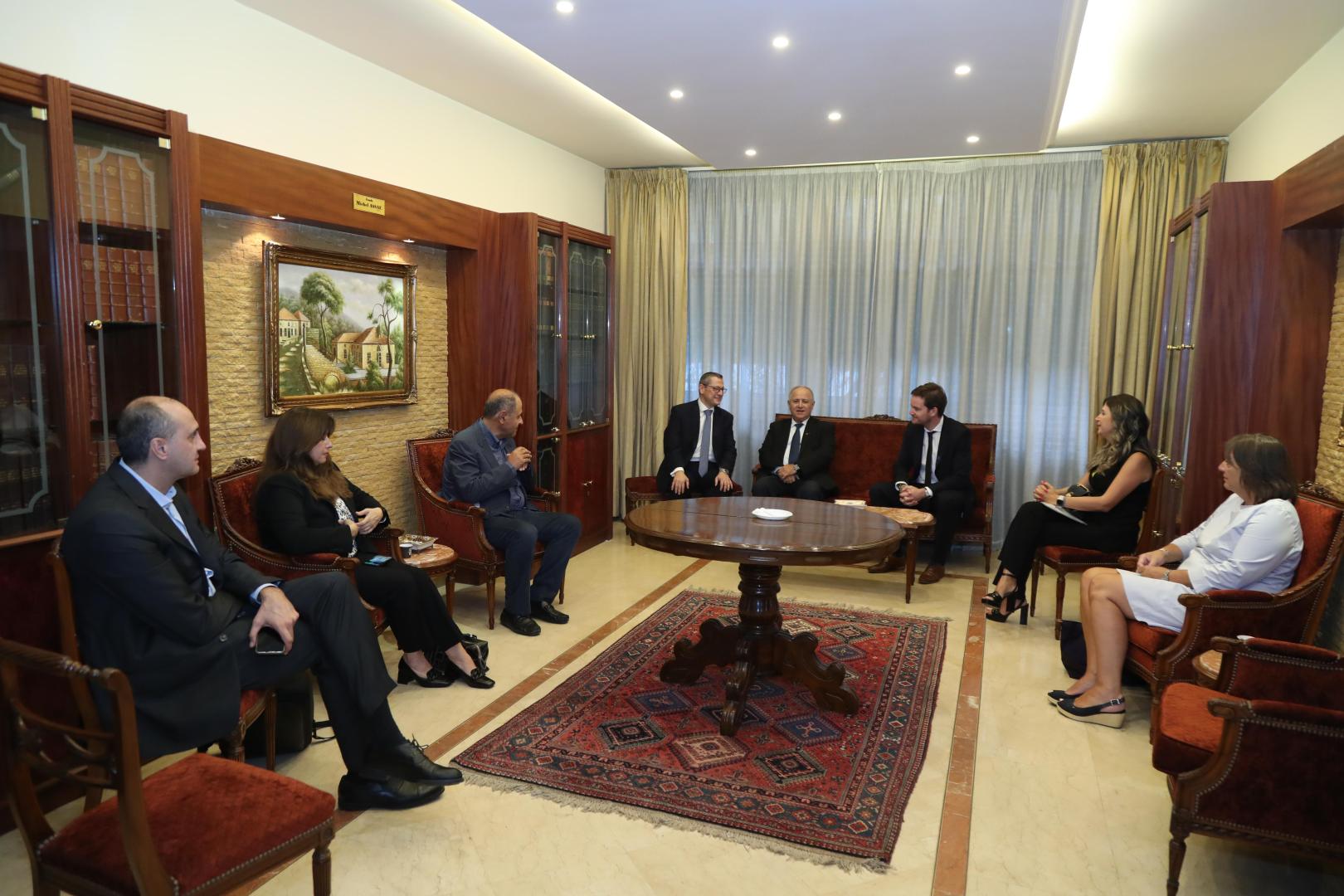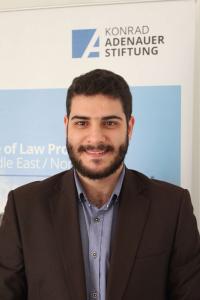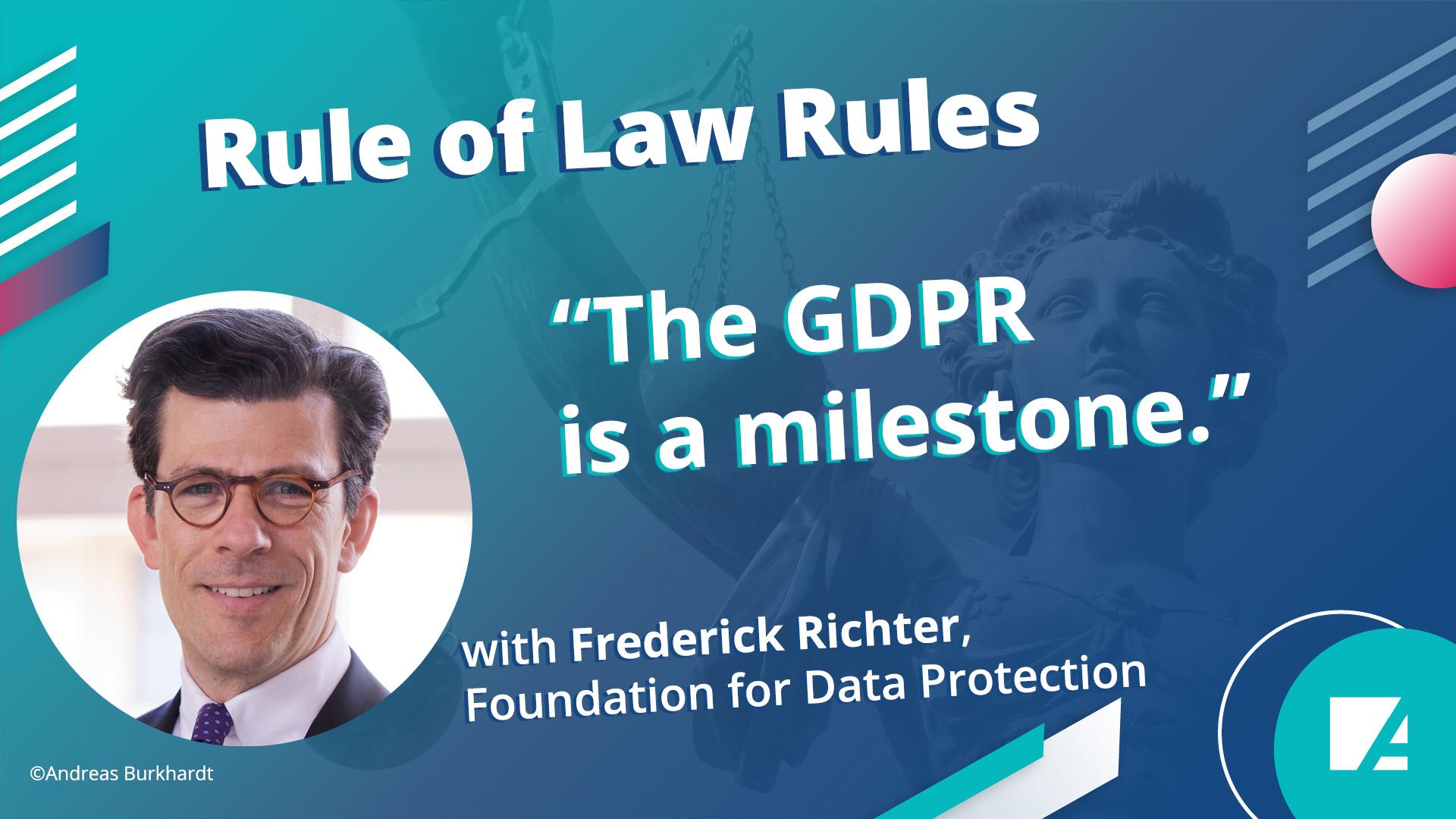At 9:00 AM, the conference commenced with an opening session in which Professor Pascal Monin - the Director of the Observatory on Public Service and Good Governance - stated that Lebanon has now entered the era of renewable energy, an era during which private sector participation in Renewable Energy production is as essential as the decentralization of the means of generation and distribution.
Mr. Philipp Bremer - the head of the Rule of Law Program Middle East and North Africa in the Konrad-Adenauer-Stiftung - followed by mentioning an action plan for Lebanon’s electrical sector which the KAS had published in collaboration with the Issam Fares Institute. What this action plan did not tackle though, said Mr. Bremer, was the legal framework upon which such a sector would be administered, a gap which this seminar would aim to fill.
Afterwards, the President of the federation of Lebanese Engineers and President of the Order of Engineers and Architects in Beirut Mr. Aref Yasin took to the stage to emphasize the Order’s pivotal role in modeling the required legal framework by means of setting unified binding technical standards as well as participating in special parliamentary committees and subcommittees to help suggest legal reform.
Finally, both the Rector of Saint Joseph University Prof. Salim Daccache as well as the Head of the Lebanese parliament work and energy committee MP Sajih Atiyeh gave the final opening remarks to set the stage for the General Director of the Lebanese Center for Energy Conservation (LCEC) Mr. Pierre Khoury’s subsequent intervention over Zoom.
The seminar was divided into two panels:
The first panel consisted of Mrs. Carol Ayat (Energy and finance professional and senior fellow at the Issam Fares Institute), Dr. Hassan Harajli (CEDRO Project Manager and UNDP energy advisor) and Mrs. Christina Abi Haidar (Attorney at Law and a governance and development specialist as well as an environmental and energy legal expert). This panel tackled the challenges of the energy sector between facts and laws and was moderated by Mrs. Diana Al Kayssi, an Energy governance expert and the director of Civil Society Engagement at IRI.
The second panel consisted of Mr. Aref Yasin, Prof. Joseph El Assad (advisor at the Lebanese Center for Energy Conservation) and Mr. Ali Berro (Attorney at Law and Energy Legal Expert). Moderated by energy expert Mrs. Laury Haytayan, this panel discussed the solutions and future prospects of the sector.
The First Panel: The Challenges of the Energy Sector between facts and laws
Mrs. Christina Abi Haidar
Mrs. Abi Haidar set the scene by mentioning Decree No 16878 which currently forms the basic legal framework upon which renewable energy production relies, which covers individual generation and consumption. Mrs. Abi Haidar called for the promulgation of the first draft of Law No. 462/2002 which has been stuck in parliament for 20 years now; this law aims to establish the Electricity Regulatory Authority and allow private sector participation within EDL (at a maximum shareholding rate of 49%) in the generation and the distribution of energy, among other things. Mrs. Haidar also mentioned the DRE draft (distribution of renewable energy) which could very well play a complementary role to Law No 462 since the latter does not tackle distribution in a substantial manner.
Mrs. Carol Ayat
Mrs. Ayat took on a more financial approach to the matter as she noted that Lebanon is signatory of the Paris Agreement and should reach a threshold of 30% of renewable energy production in 2030, but the current bulk of the 350 Megawatts of RE that is produced in Lebanon is sourced from small-scale individual projects on which the people have relied out of sole necessity. Any large-scale infrastructural project in this regard could attract investors, but these investors would need to be welcomed by a robust legal framework administering the RE sector so as to provide them with legal guarantees when it comes to their funds and the risks that may follow and to provide some transparency in the bidding processes. Finally, Mrs. Ayat suggested digitizing the electrical bills as well as adjusting the tariffs along with an improvement of collection efforts to try and restore the EDL’s financial stability. Voting on Law No 462/2002 alongside relaunching negotiations with the IMF could also play a role in restoring some trust in the state.
Dr. Hassan Harajli
Dr. Harajli provided the audience with multiple recommendations and observations based on scientific research and evidence, some key recommendations would be: that more fossil fuel plants are NOT required, the currently available ones are more than enough to provide an adequate amount of energy should they be backed by renewable alternatives and gas-powered production. Moreover, he called for prices and tariffs to be as fair to the consumer as they are sustainable to the providers. Mr. Harajli also called for companies specializing in renewable alternatives to hold the adequate licenses and certifications. Finally, Dr. Harajli suggested that more surveys should be carried out on the field of renewable alternatives in Lebanon to promote research and development.
The Second Panel: Solutions and future prospects
Mr. Ali Berro
Mr. Berro presented the audience with a suggested trifecta by which the renewable energy sector should be governed: policymakers, the electricity regulatory authority and private sector industries, all working together to provide the people with the best possible energy production outcome. Mr. Berro also mentioned “net metering”, a system by which private parties are able to convert their surplus of energetic generation to the EDL after which the latter would repay the former by lowering their electrical bills. Finally, Mr. Berro called for a modification of the law regulating the electrical sector so that members of the regulatory body would be comfortable when it comes to their salaries and benefits.
Prof. Joseph El Assad
Prof El Assad stated that in order to make past legislation effective, it is necessary to give it new life by ensuring a legal framework that is up to date, indeed he added that the median time to promulgate energy laws in Lebanon is much longer than the global average (see law No 462/2002’s situation). However, Prof. El Assad remarked that renewable energy is not the solution to the energy crisis but at least a part of it. The professor continued by stating that the private sector and the law are not in accord (when it comes to the energy sector) as the former’s needs have quickly surpassed the latter’s solutions, indeed, reliance on the State now seems less and less appealing to the average citizen, the people now realize that change starts on the individual level and not from the top of governmental hierarchy.
Mr. Aref Yasin
According to Mr. Yasin, the Order of Engineers remains a fulcrum in the field of standardization as well as scrutiny of past, current and future energy generating installations. The Order is adamant on providing adequate training to engineers and technicians alike so as to ensure a high quality of operation of any and all renewable energy installations. For the time being, Mr. Yasin has called upon municipalities to scrutinize and monitor RE installations to provide a safe environment of operation, without having to wait for the supervisory power’s confirmation.
In conclusion
It was made clear to the audience that passing certain specific laws that have been stuck in parliament would be a big step in the right direction. Lebanon’s energetic sector’s problems are not technical but rather political and legal. Lebanon has shown great potential when it comes to generating energy via alternative sources and the country remains a prospect and an example of a green-oriented electrical infrastructure, perhaps even aiming to achieve the Paris Agreement goals in due course. Now that the people have chosen to take matters into their own hands by making their own renewable energy projects, the State is called upon now more than ever to erect an adequate legal framework to ensure that these ever-expanding projects are safe, sustainable, efficient and well regulated.
Written by Marilyn Saliba & Patrik Saad



